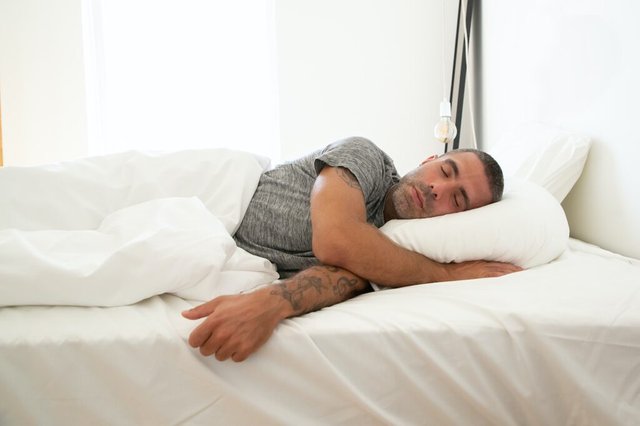
Sleep. It's something we all need, yet many of us don't get enough of. In our busy, fast-paced lives, a whole night's sleep often falls by the wayside. But skimping on sleep can seriously affect our health, happiness, productivity, and safety.
In this blog post, we'll explore why sleep is so important, how much we really need, and provide tips for getting better sleep. Read on to learn why sleep should be a top priority and how to make it one.
Why Is Sleep So Important?
Sleep has profound effects on many aspects of our health. When we don't get adequate sleep, our physical and mental health can suffer. Here are some of the top reasons why sleep is so vital:
- Improves memory and learning. Sleep is crucial for consolidating memories, making connections, and absorbing information. Chronic sleep deprivation impairs our ability to remember facts, learn new things, and focus.
- Supports immune function. Sleep deprivation weakens the immune system, increasing susceptibility to infections like the common cold. Quality sleep strengthens our immune defenses so we can fight off viruses.
- Maintains metabolism and weight. Sleep helps regulate hormones that control hunger and appetite. Too little sleep leads to poor metabolism, increased cravings, and weight gain.
- Enhances mental health. Sleep has been linked to emotional resilience, mood, focus, motivation, and overall mental health. Disrupted or insufficient sleep raises risks for depression, anxiety, and other issues.
- Supports heart health. Lack of sleep is associated with higher blood pressure, inflammation, blood sugar, and heart disease risks. Getting healthy sleep helps keep cardiovascular systems functioning optimally.
- Reduces injury risk. Exhaustion from sleep deprivation slows reaction times and impairs judgment, coordination, and concentration. This increases the risk of errors, accidents, and injuries at home, work, and on the road.
Image description: A person getting good sleep, resting comfortably in bed.
How Much Sleep Do We Need?
Sleep requirements vary by individual, but the general recommendation for healthy adults is 7-9 hours per night. Below are some guidelines based on age:
- Newborns: 14-17 hours
- Infants: 12-15 hours
- Toddlers: 11-14 hours
- Preschoolers: 10-13 hours
- School-age children: 9-11 hours
- Teens: 8-10 hours
- Adults: 7-9 hours
Of course, these are just averages - some people function fine on less sleep while others require more. The most important thing is listening to your body and noticing how you feel after different amounts of rest. Stick with the amount that helps you feel refreshed and energetic throughout the day.
Tips for Improving Your Sleep
If you regularly have trouble falling asleep, staying asleep, or waking up feeling tired, there are many ways to improve your sleep quality and duration:
- Establish a relaxing pre-bedtime routine by listening to calm music, meditating, or taking a warm bath signals your body it's time to unwind.
- Avoid screens before bed the blue light from devices like phones and computers suppresses melatonin and keeps your mind alert.
- Make sure your bedroom is cool, dark, and quiet these conditions tell your brain it's time for rest. Consider blackout curtains, a fan, or a white noise machine.
- Go to bed and wake up at the same time consistency helps regulate your body's sleep-wake cycle. Stick with your schedule, even on weekends.
- Limit naps to 30 minutes or less longer daytime naps can interfere with nighttime sleep.
- Avoid caffeine, nicotine, and alcohol in the afternoon/evening these can disrupt your ability to fall and stay asleep.
- Exercise during the day and being physically active promotes deeper sleep at night. Just avoid vigorous workouts near bedtime.
- Manage stress through yoga, meditation, deep breathing getting anxious thoughts under control helps you unwind.
- Skip the late-night heavy meals and eat lightly before bed for easy digestion and prevent disruptive heartburn.
- See your doctor if problems persist issues like sleep apnea may require medical treatment.

Sleep plays an enormous role in protecting and enhancing our health. By understanding its importance and intentionally prioritizing rest, you can wake up feeling more energetic, focused, emotionally balanced, and healthy overall. Give yourself the gift of sufficient high-quality sleep - your mind and body will thank you.
Posted from my blog with Exxp : https://holisticcaretips.com/the-power-of-sleep-why-its-so-important-and-how-to-get-more-of-it/